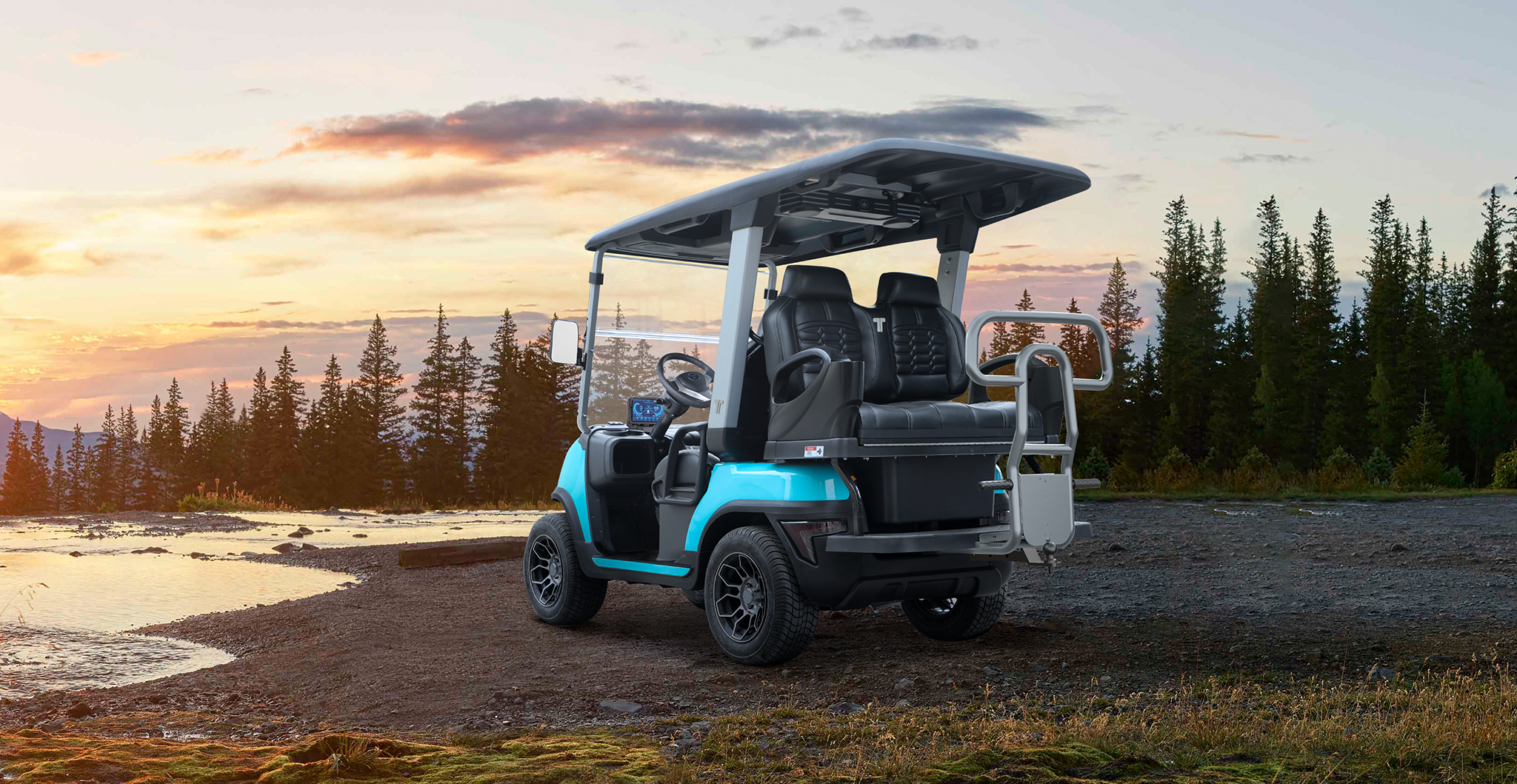Golf carts are no longer limited to the fairways. Today, they serve as eco-friendly, versatile vehicles used in residential communities, resorts, industrial campuses, and even on public roads where street-legal. If you’re considering one for personal or commercial use, you’re probably asking: How much should I spend on a golf cart? Is it a smart investment? What’s the best brand? This guide will walk you through the key things to consider before buying.
1. How Much Should You Spend on a Golf Cart?
Golf carts range widely in price depending on several key factors — seating capacity, battery type, powertrain (gas or electric), accessories, and brand reputation.
Basic models: A standard two-seater golf cart with a lead-acid battery can start as low as $5,000 to $6,500. These entry-level models are ideal for casual golfers or minimal transport needs.
Mid-range options: A four-seater with upgraded materials, aluminum chassis, and optional weather protection will typically cost $7,000 to $10,000.
Premium carts: High-end models, especially those powered by lithium batteries, with luxury seating, touchscreen controls, and integrated tech like Bluetooth speakers, may range from $10,000 to $15,000 or more.
Ultimately, how much you should spend depends on what you expect from your cart — a budget model for weekend use, or a reliable, long-term mobility solution with modern features. If you’re unsure where to start, manufacturers like Tara Golf Cart offer a wide range of customizable models across all price points.
2. Are Golf Carts a Good Investment?
The short answer: yes — if you choose the right one.
Golf carts are increasingly viewed as a smart, sustainable transportation option. Especially in planned neighborhoods, golf resorts, universities, and gated communities, their versatility is hard to beat. Electric golf carts are cost-effective, requiring far less maintenance than gas vehicles. They are also much cheaper to operate, with no fuel and minimal service needs beyond battery care.
Beyond the convenience factor, electric golf cars add long-term value through energy efficiency, environmental friendliness, and lower total cost of ownership. They’re not just a luxury item — they’re a practical mobility solution. And for businesses, they help move people and goods efficiently, with zero emissions.
Some models even qualify as Neighborhood Electric Vehicles (NEVs) and can be registered for street use depending on your local laws.
3. What Is the Best Brand of Golf Cart to Buy?
Several brands have built strong reputations over decades — each offering durability and support. But the golf cart market is evolving fast. Consumers today demand better technology, comfort, and style than ever before.
Emerging leaders like Tara Golf Cart focus on modern electric golf carts that merge form and function. Tara models include lithium battery systems with advanced BMS (battery management system), smart digital dashboards, premium seats with headrests and seatbelts, and customizable options to fit residential or commercial needs.
When choosing a brand, prioritize:
Battery quality and warranty (especially for lithium options)
After-sales service and parts availability
Build quality and materials
Safety features and user comfort
Resale value
A reputable brand with advanced lithium technology and long-term support will almost always offer the best value.
4. How Many Years Do Golf Carts Last?
With proper care, a golf cart can last 7 to 15 years, sometimes even longer. The longevity depends on how frequently it’s used, whether it’s stored properly, and how well it’s maintained.
One of the most critical factors is the battery system:
Lead-acid batteries typically last 3–5 years and require regular watering, charging, and cleaning.
Lithium batteries, like those found in many Tara models, can last 7–10 years or more, with minimal maintenance and significantly better performance.
Other components — brakes, tires, electronics, suspension — all affect overall lifespan. It’s important to follow the manufacturer’s maintenance schedule and store the cart in a covered space, away from harsh weather.
For used golf carts, always check the battery age and maintenance records. A poorly maintained cart might come cheap but will likely need replacements that outweigh the savings.
Conclusion: Should You Buy a Golf Cart?
Whether you’re a golfer, a homeowner looking for neighborhood convenience, or a business seeking green transportation, investing in a golf cart makes practical sense.
Start by asking:
How often will I use the cart?
How many passengers do I need to carry?
Do I want low maintenance and modern features?
Am I willing to invest upfront for long-term savings?
A high-quality golf cart that fits your needs will deliver years of service, flexibility, and enjoyment — not to mention reduced carbon emissions and fuel costs. Brands like Tara are leading the way in offering luxury-level features with durable electric performance, making them one of the most trusted names in the industry today.
So, yes — a golf cart can absolutely be a good investment. Just make sure you choose wisely, and you’ll have more than just a vehicle — you’ll have freedom on four wheels.
Post time: Jun-21-2025







